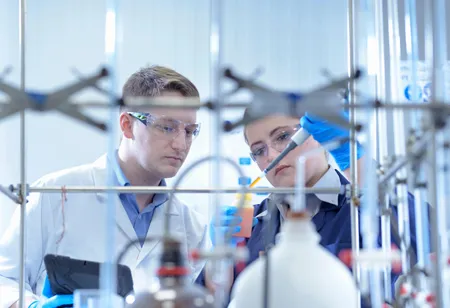Chemical synthesis, process design and optimization, and materials science are all essential areas of chemical technology.
FREMONT, CA: Chemical technology is an essential aspect of the chemical industry, producing a wide range of products used daily. The chemical industry has been instrumental in revolutionizing the way we live, work, and interface with the world around us. Chemical technology has created new and improved materials, fuels, pharmaceuticals, and countless other products that have transformed the modern world.
One of the key areas of chemical technology is chemical synthesis. Chemical synthesis involves the creation of new chemical compounds by combining different chemical elements or molecules. Chemical synthesis is used in producing a wide range of products, from pharmaceuticals to plastics, and it is an essential aspect of the chemical industry.
Another important area of chemical technology is process design and optimization. Chemical processes are often complex and require careful design and optimization to ensure they are efficient, cost-effective, and environmentally friendly. Chemical engineers use various tools and techniques to design and optimize chemical processes, including computer simulations, experimental testing, and mathematical modeling.
Chemical technology also plays a critical role in the development of new materials. Materials science is an associative field that combines chemistry, physics, and engineering to study the properties and behavior of different materials. Chemical technology is used to synthesize new materials and modify existing materials to improve their performance and properties. Examples of new materials developed using chemical technology include carbon fiber, graphene, and high-performance polymers.
In the past few years, there has been a growing focus on developing sustainable chemical technologies that minimize the environmental impact of the chemical industry. Sustainable chemical technologies aim to reduce waste, energy consumption, and greenhouse gas emissions while maintaining or improving product quality and performance. Some examples of sustainable chemical technologies include green chemistry, biorefineries, and renewable energy sources such as solar and wind power.
Green chemistry is a department of chemistry that concentrates on the design of chemical processes and products that are environmentally friendly. Green chemistry aims to reduce or eliminate hazardous chemicals, minimize waste generation, and maximize energy efficiency. Biorefineries are another example of sustainable chemical technology. Biorefineries use renewable resources such as biomass to produce various products, including biofuels, chemicals, and materials.
Renewable energy sources like solar and wind power are also becoming increasingly important in the chemical industry. Renewable energy sources can power chemical processes, reducing the industry's reliance on fossil fuels and greenhouse gas emissions. In addition, renewable energy sources can be used to produce hydrogen, a key chemical industry feedstock.
In conclusion, chemical technology is a critical aspect of the chemical industry, enabling the creation of new and improved products that have transformed the modern world. Chemical synthesis, process design and optimization, and materials science are all essential areas of chemical technology. Sustainable chemical technologies such as green chemistry, biorefineries, and renewable energy sources are becoming increasingly important as the industry seeks to minimize its environmental impact. The future of the chemical industry will undoubtedly be shaped by continued advances in chemical technology and a growing concentration on sustainability and environmental stewardship.

